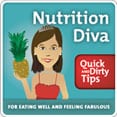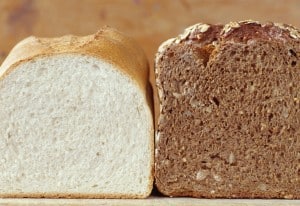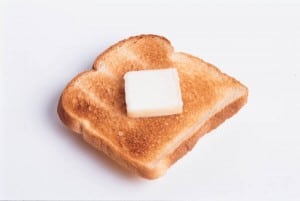
Here’s an example of a well-designed, industry-funded study that–unlike others I’ve mentioned in the past–actually yielded useful information.
The study, which was funded by the American Egg Board, found that people who ate eggs for breakfast were less hungry and ate less for lunch than people who ate cereal. But before you conclude that the study was simply rigged to yield a flattering result for the funder, take a closer look at how it was designed.
Although it’s impossible for a study like this to be truly “blinded” (how do you keep the subject from knowing that they are eating eggs instead of cereal?), the effects on satiety and subsequent food intake were measured objectively as well as subjectively. The subjects were asked to rate their hunger but researchers also took blood samples and found that levels of “hunger” hormones were consistent with their reports. They also didn’t ask the subjects to self-report their subsequent food intake; they actually measured how much the subjects ate (without the subjects being aware of that their intake was being monitored). The study is currently before a peer-review board.
Now, if this were just a story about protein being more filling than carbohydrates, I wouldn’t be wasting space here on my blog with it. (See also: How to eat less without feeling hungry.) But here’s what’s particularly interesting about these results:
The two breakfasts contained virtually the same amount of protein.
The protein in eggs is considered to be a higher quality than wheat protein because it provides a more balanced and complete profile of amino acids. The study suggests, therefore, that when it comes to controlling hunger, it’s not just about how many grams of protein you include in your meal. The quality of the protein appears to be at least as important as the quantity. Definitely something for vegans to keep in mind…it may take more grams of vegetable protein to get the same appetite-controlling effect as you would get from animal sources.
Before we go re-writing the dietary guidelines, I should note that the study only involved 20 subjects, all of whom were obese. It remains to be seen whether we’d see the same results in non-obese subjects (or in a larger study group). I’d also be interested in taking this research a step further, comparing eggs and wheat to other protein sources, like dairy, soy, fish, or legumes.
In the meantime, however, this is an interesting contribution to the “What’s for breakfast” debate.
See also: Can we Trust Industry Funded Research?




 Hold the skim latte and bring on the butter? High-fat breakfasts are enjoying a comeback in some circles, after
Hold the skim latte and bring on the butter? High-fat breakfasts are enjoying a comeback in some circles, after